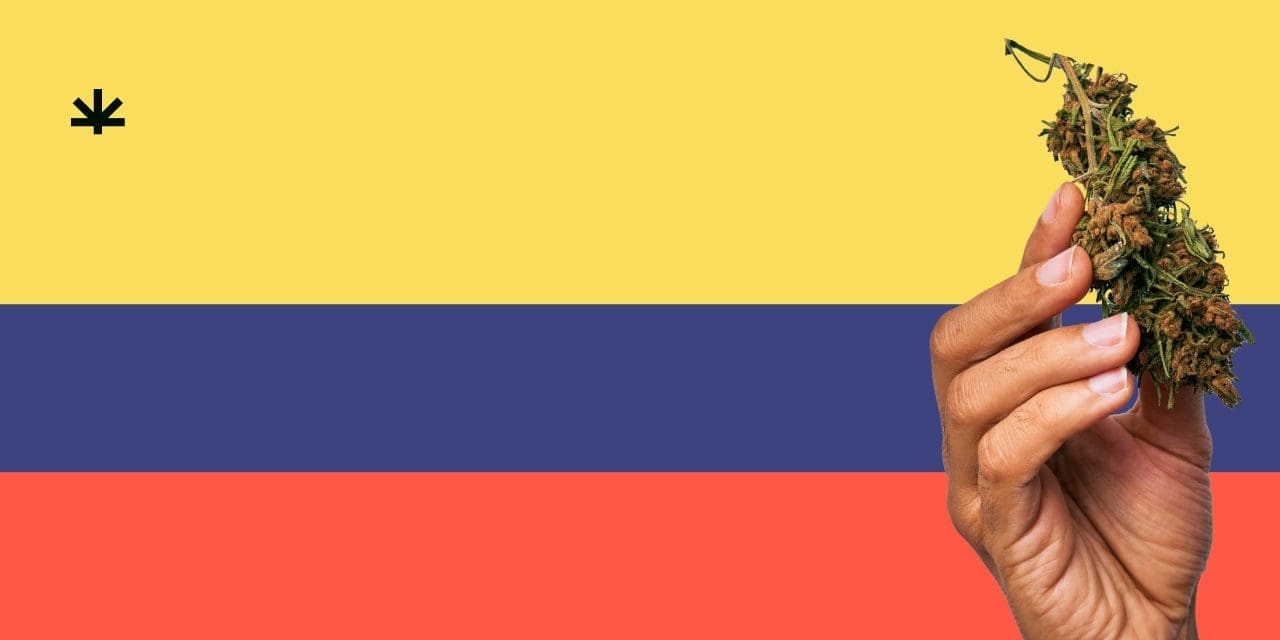Is Marijuana Legal in Colombia?
2 min read


Recreational marijuana is illegal in Colombia, but medical marijuana has been legal since 2016. While cannabis is not strictly legal for personal use in Colombia, possession of a limited quantity of all drugs, including cannabis, has been decriminalized since 1994 — meaning the government treats drug use and abuse as a public health issue, not a criminal one.
Decriminalization marked a stark shift in drug policy for the nation, which has taken steps to change its approach to drugs. The ruling to decriminalize cannabis allows citizens to possess up to 20 grams of cannabis or grow 20 plants. However, the sale or purchase of cannabis is still illegal in Colombia.
Medical Marijuana Laws in Colombia
Colombia is making steps toward proper legalization. As recently as December 2022, Colombian legislators were furthering bills to legalize recreational marijuana in the country.
However, decriminalization in the interim provides explicit protections for recreational cannabis users. In 2019, for example, a Colombian court ruled that the constitution protects the public consumption of marijuana. On the other hand, despite the legalization of the medical use of marijuana in 2016, the nation’s medicinal cannabis program and its laws can be hard to understand.
Medical Cannabis Is Covered by Insurance in Colombia
While medical cannabis patients in the United States currently see no part of their cannabis care covered by insurance, Colombian patients can rest easy.
In late December 2022, Colombia’s Ministry of Health confirmed insurance providers must cover cannabis products. Khiron, an international medical cannabis company, announced that over 90% of its cannabis sales in Colombia during the first half of 2022 were for insurance-covered prescriptions.
Colombian Dispensaries Are Slow to Open
Despite Colombia’s medical cannabis program being legalized in 2016, dispensaries and clinics have been slow to open. Colombia’s capital and largest city, Bogotá, did not open its first medical marijuana clinic until March 2020.
Khiron, the company responsible for opening the first cannabis clinic, opened its fourth location nearly two years later, in January 2022. The cannabis clinics sell THC and CBD products and serve as medical treatment facilities for specific conditions or symptoms that marijuana may help manage.
Laws Are Constantly Changing
It’s important to stay current with cannabis laws that are often subject to change. While decriminalization currently allows for the possession of up to 20 grams of marijuana, that limit could change if the recreational use of cannabis becomes legalized, which could lead to more stringent regulations.
Perhaps most importantly, it is essential to know what is still illegal according to the Colombian government. Remember, while you can possess a certain amount of marijuana for personal use without penalty, the sale and purchase of cannabis are currently still illegal in Colombia.
Is Cannabis Cultivation Legal in Colombia?
It is legal to grow up to 20 cannabis plants for citizens in Colombia. In order to participate in the legal industry as a cultivator, obtaining a cultivation license is necessary.
Seven different licenses are issued by either the Ministry of Justice and Law or the National Institute for Drug and Food Surveillance (Invima). These licenses vary based on whether a cultivator intends to grow psychoactive or non-psychoactive cannabis plants or manufacture cannabis products using plant derivatives.
The Bottom Line
In Colombia, the success of drug policy reform efforts indicates the nation has no plans to go backward. In 2021, for example, Colombia established itself as a significant player in the legal international cannabis market when it ended its ban on exporting dried cannabis flower.
Since cannabis policy is constantly changing in Colombia and around the world, it’s important to stay current on current laws to protect yourself from any legal repercussions.